November 1/18
Things are happening in a bunch these days. Turkey surrenders unconditionally, Austria practically all in, and Germany completely isolated. She can’t possibly hold out much longer, and the end may come any day—and what a day that will be, what rejoicing and celebrating.
We are still in the same sector, no indications of our moving soon. May remain here until end of war.
Still we are having plenty of excitement, a considerable number of casualties. The Boche have gotten some of our troops and we have taken a few Huns. Major Prince was captured this morning. Too bad, a fine fellow and as daring as they make them. All indications point to the fact that he was captured along with several other men. Have been detailed to sit on an efficiency board to examine into the efficiency of officers of 366th Infantry. Had our first case today, expect before we finish with the remainder it will be three or four days.
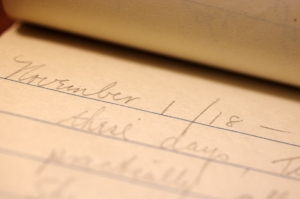 Made a rush trip yesterday to Bellville and Marbache in side-car—had to turn over about 26,000 francs, surplus money over payrolls this month. Received a letter from sis, dated the 7th of Oct. Pretty fair.
Made a rush trip yesterday to Bellville and Marbache in side-car—had to turn over about 26,000 francs, surplus money over payrolls this month. Received a letter from sis, dated the 7th of Oct. Pretty fair.
November 5/18
Regimental P.C. still at Loisy. Expecting to move up at any time, expecting our lines to be advanced shortly to within a short distance of Metz. Then it will be necessary to move our lines and P.C. We pulled off a big raid night before last and the results have kept me on the jump ever since. Numerous casualties, especially gas. The Boche are throwing over all kinds of gas shells and they certainly get our men. The sector on our right is sure active tonight. Big attack on I should judge, terrific bombardment and even at this distance the old billet is fairly quivering. Look for our forces to advance on either side of Metz, encircle it and make an enflanking movement on the city. Was up front today near Atton making a little reconnaissance. Have learned of Austria’s complete surrender and rumors of the terms given Germany—mighty stiff—but she cannot do other than accept. Am betting about two months salary it will be over by the first of the year.
“The Boche are throwing over all kinds of gas shells and they certainly get our men.”
November 28/18
Twenty-three days have elapsed since I have written in this book and so much has occurred that I will probably be unable to remember the greater part of what has happened.
To begin with these past three weeks have been the most exciting of my life, and I dare say no three weeks in the history of the world have seen the equal. The almost unheard of has happened—the finish of the terrible old slaughter. I will attempt to relate as closely as possible the more important things that have happened since my last few lines were written in this book. To begin with, about the 6th of Nov. Capt. Sweitzer, my co-partner as adjutant, was taken sick with a mild case of the “flu.”* It therefore became necessary for me to take over his duties as well as my own. There was an exceptional lot of special work to be done, and to say that I was busy would be putting it altogether too mildly.
*This was likely the Spanish Flu, which was quite active in the fall of 1918, and by the end of 1920 would infect half a billion people worldwide. It’s estimated that this brutal strain of the traditional flu killed 3 to 5 percent of the world’s population at the time.
About the 8th we learned that Germany had been given 72 hours to accept the terms of the armistice offered by the Allies. This was wonderful news and everyone could see that peace was in sight. That day was one of much rejoicing, especially among the enlisted men. Also on the 8th our Regiment received orders to be prepared to go over the top and execute an attack on our entire front, endeavoring to take as our first objective the [Bois d’ Frehaut?] and Bois [Vivorolte?], second objective Champey & Bouxieres. These were very strong points of the Boche and the fact that they were directly in front of the strongest fortified city in the world, Metz, made their attainment somewhat of an achievement. The order read that the attack would the 9th [sic] and the advance continue until our first and second objectives had been reached. Our 1st and 2nd Battalions moved into position and prepared to go over the top at the break of day.
The [Bois d’ Frehaut?] & [Vivorolte?] were lined with Boche M.G. nests and the wire entanglements were nearly impossible. It was therefore necessary that a terrific artillery barrage be laid down before our infantry could advance. This was started early in the morning and what a barrage it was, something that is beyond description. The best possible illustration might be a heavy wagon being drawn over a stone-paved street at a gallop, except that the sounds were a thousand times louder.
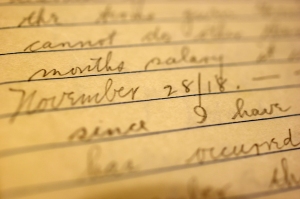 When the artillery had prepared the way, our boys went over the top following it closely. The fighting was hard and terrific all that day but our boys did some good fighting and our lines were advanced some four kilometers.
When the artillery had prepared the way, our boys went over the top following it closely. The fighting was hard and terrific all that day but our boys did some good fighting and our lines were advanced some four kilometers.
During this time our P.C. had remained at Loisy and the operations were being directed from this point, but with our lines advancing slowly it was necessary for us to move forward and we were prepared to do this at a moment’s notice.
On the 10th our advances continued to such an extent that it was necessary to move our P.C. forward. The rear echelon was to remain at Atton, the advance echelon including the colonel and immediate staff was to establish their P.C. at Bell Air farm, some 3 ½ kilometers north of Port-a-Mousson. On our way up forward the different sights that we saw only made us realize even more clearly the fact that a big attack was on. The roads were jammed with advancing artillery, Boche prisoners were being marched to the rear, the wounded were being evacuated to the rear in crowded ambulances. One poor soldier stood by the roadside crazy with shell shock. He had stripped off every stitch of his clothes and he stood there waving his arms and shivering with the cold, a pitiful sight. The Colonel at once directed a passing soldier to care for him.
We drove up toward the trenches until the wire entanglements became so thick it was impossible to progress farther. We then started to walk to our new P.C. Bell Air farm. During my three months at the front I have seen some barbed wire entanglements but never any such as we had to crawl thru’ at this time. It was literally a sea of wire. We were then within some few hundred yards of the Boche trenches and immediately behind our advancing troops. When we had progressed some distance Heinie evidently spotted us as the big boys were falling around us and shell holes and other indentations in the ground were mighty inviting. To make things more exciting some Boche snipers located us and the sing of those rifle bullets made us do some tall scrambling thru’ the wire and into shell holes.
We finally established our regimental P.C. in the old ruins of a farm house known as St. Michel farm. The cellar of this house had been converted into a dugout and the bare walls and ruins over head served as a shelter.
“Some Boche snipers located us and the sing of those rifle bullets made us do some tall scrambling.”
We were later joined by Major Simmons, regimental surgeon; Capt. Hopkins, Intelligence Officer; Lieut. Babe, artillery liaison officer, was also present (the latter from Springfield, Mass.). This completed the staff. From that time on I was writing orders continually and under the direction of the Colonel (first one phase and then another of the attack was directed).
The earlier part of the evening was quiet and most of our time was occupied in the receiving of and transmitting of orders regarding different plans of attack on that next morning.
About eleven thirty the Boche artillery began to make itself known and from that time until after daylight there was one grand lively bombardment on and around our little old P.C. Time and again Heinie got direct hits on the roof of our little shelter and as each shell screamed by we held our breaths. One end of the P.C. was completely shattered and a door closed up—but the old place held and all was well until about 2.00 p.m. when the Boche started their dirty work. Mixed with their H.E.† they threw over plenty of mustard gas shells and we heard their fatal ping as each struck the dugout or ground beyond. The gas sentry at the door was on the job and gave the alarm. We donned our masks and wore them for three or four hours.
Later we received orders from the General that the attack would continue at 5 a.m. following the most intense barrage from the artillery we had yet received.
†”High explosive.”
“They threw over plenty of mustard gas shells and we heard their fatal ping as each struck the dugout.”
It was necessary to write orders, use the telephones and various other things which could not be accomplished with the mask on—so from there on it was worn only intermittently, as the dugout had been nearly cleared of gas by fires. But Fritz kept up his dirty work and rained H.E. and gas on us mighty heavily. The attack continued at 5 a.m. and the artillery barrage which we followed was wonderful. About six o’clock the effects of the slight concentration of mustard gas that we had necessarily been in began to toll on us. Our eyes smarted, we began to get weak and rather choked up—but about that time we received from the Division commander the most wonderful news that could possibly come: To cease all firing and hostility at 10.45 a.m.
Imagine if you can the wild joy of our soldiers that little message that I wrote to the Battalion commanders conveyed, the most joy of any that I will ever be able to write. The sight was wonderful to witness. Right up in the lines as we were, it certainly could be appreciated by us.
The effects of the gas were forgotten in our excitement. We all stuck it out until that long to be remembered hour of 10.45 a.m. Nov. 11, 1918. Then they piled us into an ambulance and rushed us to Field Hospital #366. We expected to return the next day after a good bath—but none of us realized the terrible effects of mustard gas. Shortly after reaching the hospital my eyes began to close and for two days I was unable to see even the light of day. It was then that I realized to what extent we were gassed. I lay in bed and many, many times wondered if I would ever see again and I can assure you it was anything but pleasant. On the 14th of November we were pronounced somewhat better and moved to Base Hospital #82 at Toul. There in the gas ward the sights that we necessarily saw were anything but encouraging: big fine American soldiers, blind, burnt completely over their bodies and physical wrecks—all the result of mustard & other gases. Sure was enough to take the heart out of you.
“I lay in bed and many, many times wondered if I would ever see again.”
But under the supervision of American nurses and doctors we improved rapidly and about the 20th I walked out and around the Hospital and the next day went to Toul.
We all were discharged from the Hospital on the 28th and returned to our regiment which was then located at Pont-à-Mousson still rather a sickly bunch but glad to get back to work.
How much had happened since we went away: The Boche had evacuated the territory up to and including Metz, the Army of occupation been appointed and gone forward and many other radical changes.
We learned of the intense excitement immediately after the armistice went into effect. Boche soldiers came running over to our trenches, stripping off buttons and other things for souvenirs. In several instances they asked our soldiers over to have wine and something to eat. It was just this that I had desired to see and be in but the old gas made it impossible.

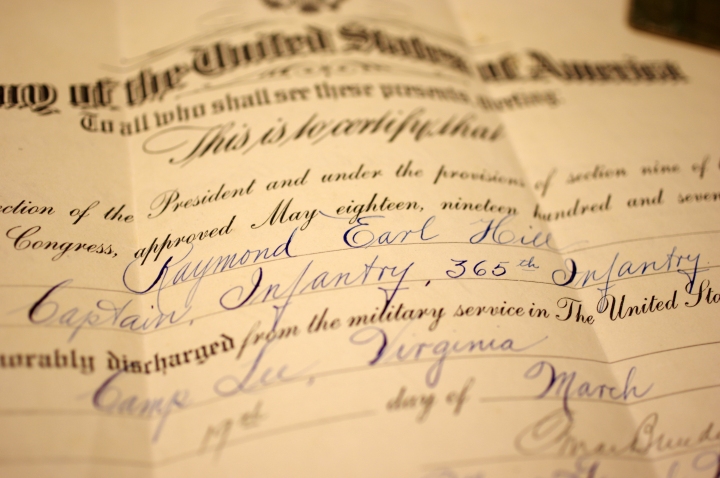
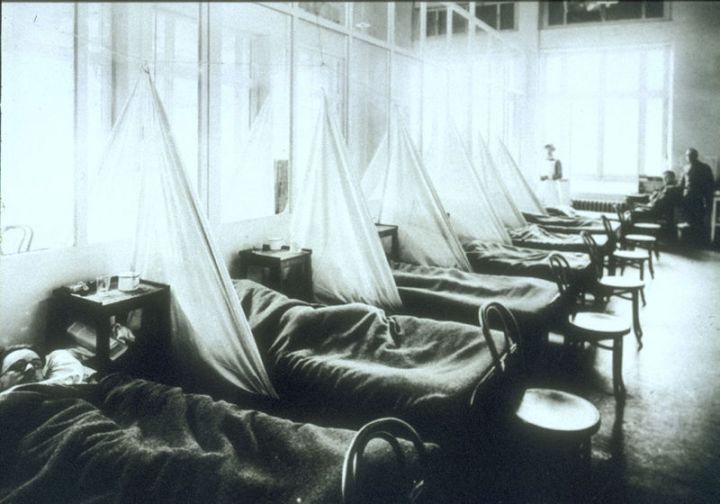
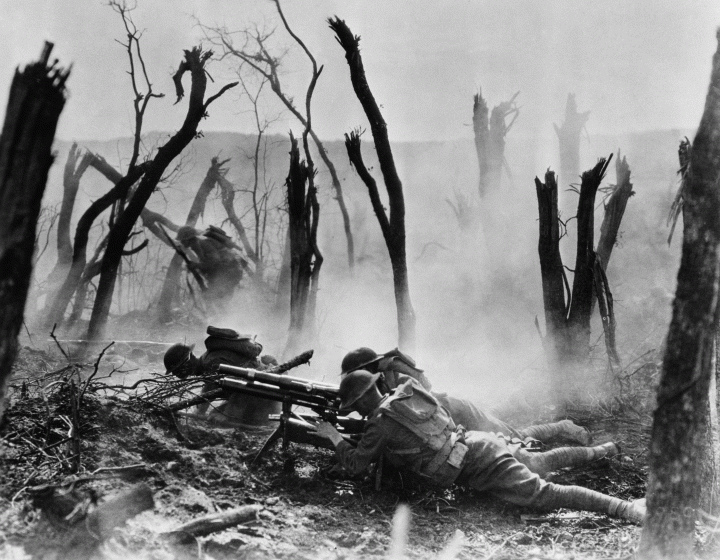
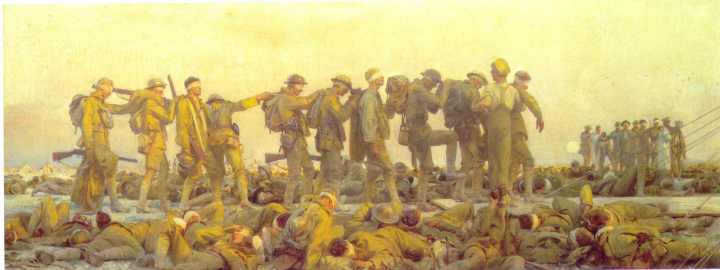
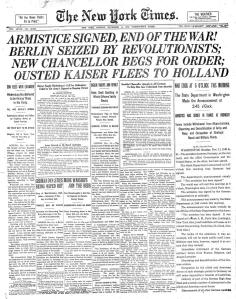
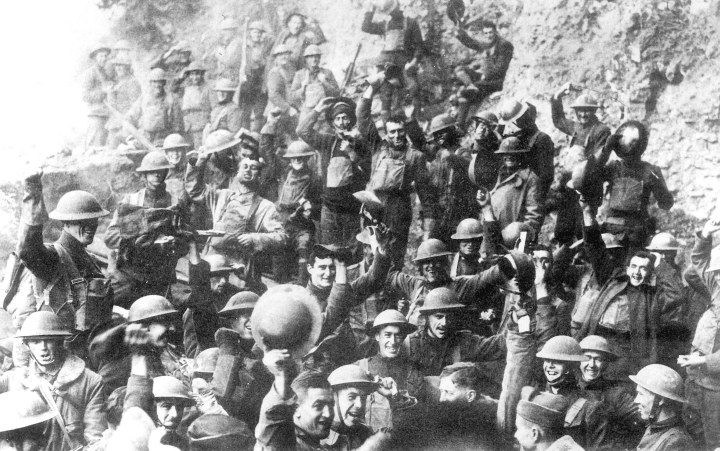
Such a wonderful read and insight into history. Thanks for transcribing and sharing your great-grandfather’s experience with us.
Awesome read; thanks for taking the time.
Awesome first hand recollection.
Agreed. This was priceless
Thank you for your effort. What a wonderful account. I kept honing in on the word “exciting”, which is how he typically described intense danger. Interesting use of language.
Your work is appreciated. A visitation from the past…what a brave soldier.
This is fantastic! I teach high school world history and plan on using your grandfathers story when we do our unit on WWI.people should know more about it. Thanks so much for taking the time to type it up.
Absolutely riveting account of a terrible yet fascinating time in history. Thanks so much for sharing.
Thanks for sharing!
Wow – incredible that he never once questions the necessity of a significant action at this point in the war, with presumably massive loss of life (including very nearly his own), when he is so confident that the enemy will accept the terms and surrender anyway that he is willing to bet two weeks wages on it.
I wonder if this kind of unquestioning respect for authority is required for such a terrible war to happen. I hope so because it would mean that it would be impossible today. I’d much rather fight David Cameron than fight someone else on his orders.
Very powerful entry that brought tears to my eyes…thank you
This is amazing, thank you so much!
Your grandfather would be very proud of how you are preserving such a sad but important time of history . It is so sad how some have forgotten so soon. So much was sacrificed so we can live freely today. I had a great uncle who served in WW1 also but it haunted him the rest of his days and he could never speak of what he went thru. Thank you for taking the time to help us all remember and understand.
A chilling and vivid perspective! Freedom is not free and never has been, thank you for sharing. A proud grandson!
Pingback: WWI Profile: Robert Bollie Stanley 1894-1961 | Friends of Fort Caswell Rifle Range, Inc.
Thank you for sharing a personal account from such a momentous event, very interesting to see parts of the great war from men who were right in the trenches. Would recommend everyone interested in WW1 or war history in general the book ‘Poilu: The World War I Notebooks of Corporal Louis Barthas, Barrelmaker, 1914-1918’